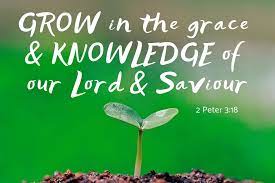Knowledge of God Recapped
To know or knowledge (yada) in the Old Testament means to: (1) know by observing and reflecting (thinking) and (2) to know by experiencing and being acquainted with. Yada represents both the intellectual and experiential side of knowing.
In the New Testament this same thought is continued with the Greek words, ginosko and oida, which recognizes an increase in knowing or knowledge. The word epiginosko (epi, “upon”) expands knowing to full knowledge through a special participation and uniting with the object (Col. 1:6). This is the experiential side of knowledge.
Knowledge of God accomplishes three things in our life as believers: (1) it establishes the moral authority and inspiration in our life, (2) it results in purposeful living, and (3) it enlightens us as to what God has given to us.
Knowing God and knowledge of God are both part of the same coin. Our knowledge of God paves the way to knowing God AND knowing God creates a desire to increase our knowledge of Him.
Peter’s blessing
In Peter’s second letter to God’s elect, he expressed concern about false teachers in their cities. He opened with a special blessing that would offer both favor and protection against the error being communicated at that time. Peter prayed that grace and peace would increase abundantly to meet the challenges they faced. How? By continuing to grow in the knowledge of God AND Jesus their Lord (2 Pet. 1:2, NKJV).
Like the elect receiving Peter’s letter, we too are surrounded by false teachers. I use this term more generally to describe those who perpetrate disinformation and misinformation. Their sole purpose is to create false narratives, perpetuate divisiveness, and seed dissension for gain. Social media continues to invade our thoughts resulting in unhealthy influences, high anxiety, and fear. AI with its many benefits also brings new threats of abuse and misuse.
Peter contends that through knowledge of God, we have everything we need for living godly and prosperous lives. This knowledge is made available to us through God’s Word (Psa. 19:7-9) and through His Holy Spirit. In addition to God’s “exceeding and great promises”, we are also partakers of His “divine nature” (2 Pet. 1:3-4).
Even in the direst of circumstances, we must remember and declare that we have the victory through Jesus Christ, our Lord and Savior (Rom. 8:35,37; John 16:33). Our knowledge of God is the filter through which we respond to 21st century challenges and live triumphantly even in a fallen world (2 Cor. 4:14-18). Next week we will detail how we can grow in our knowledge of God.
Closing Reflection
Truth time. Do we want to come to a knowledge of God? Do we want to increase our knowledge of Him? Or are we satisfied with what we know today?
A.W. Tozer in his book, “The Dangers of a Shallow Faith,” shares his observation of the modern Church in their search for things of “this world” rather than knowing God. After reading this short excerpt, let’s ask ourselves, “what are we seeking as a substitute for the knowledge of God?”
The Early Church was in wonderment at Christ. He dazzled them and stirred within such feelings of amazement that they could never get over Christ. All they talked about was Christ. All they thought about, from morning to night, was Christ. Christ was their only reason for living, and they were more than willing to die for Him. Now we looked to celebrity to dazzle us. For some reason we assume that carnal entertainment is the appropriate replacement for the sanctified adoration of the Most High. No cheap thrill can ever replace the ecstatic joy of knowing Jesus Christ.

